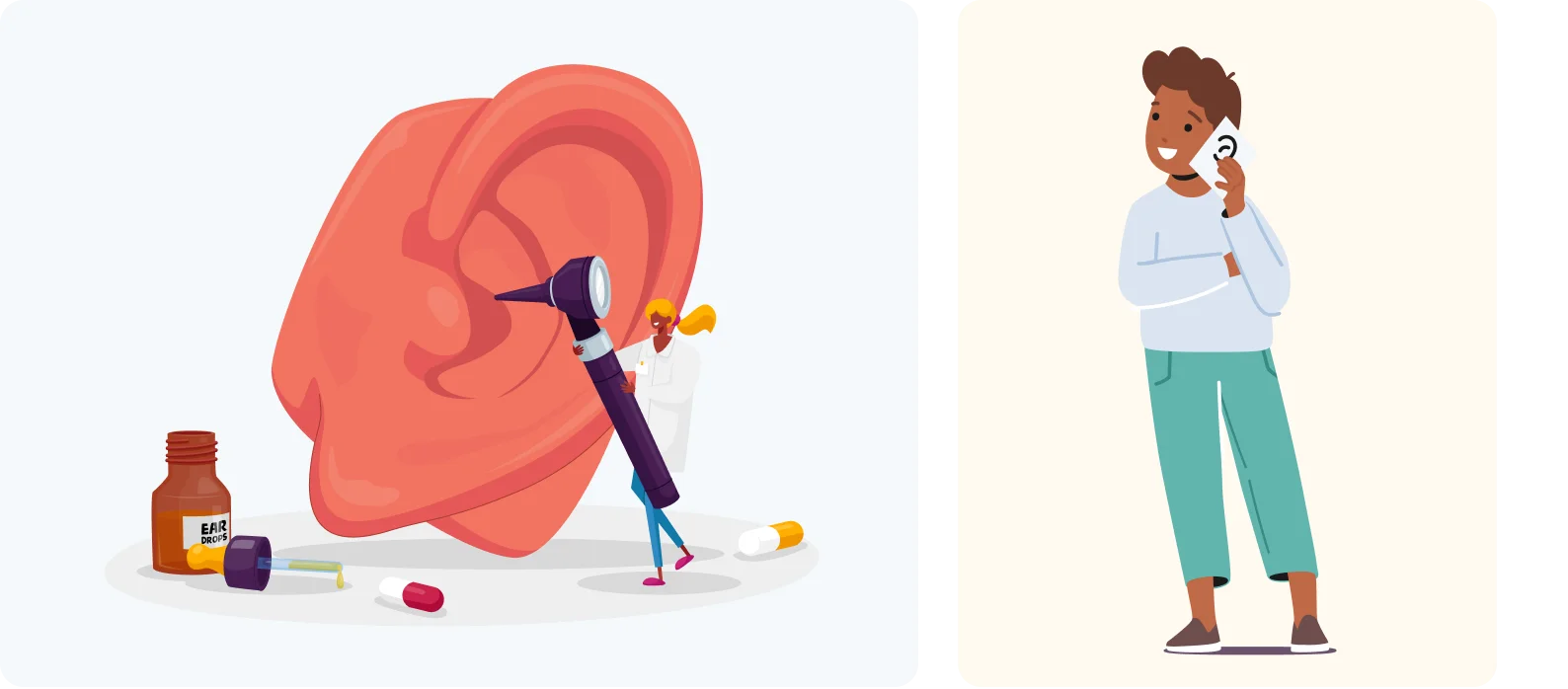Definition
One type of ear infection known as otitis media, is a painful inflammation or an accumulation of fluid in the middle ear—the space behind the eardrum that holds the vibrating bones of the ear. Children are more likely than adults to get ear infections.

Causes
Ear infections can be caused by bacteria (e.g., Streptococcus pneumoniae) or viruses (e.g., respiratory syncytial virus, influenza). They can also start when the eustachian tube (the drainage tube that connects middle ear to the back of throat) gets blocked. That blockage leads to fluid accumulating in the middle ear that then gets infected.
Here are some common causes of blocked eustachian tubes that can then contribute to an ear infection:
- Cold, flu, or other respiratory infections
- Allergic reactions cause swelling and congestion
- Passive smoking or exposure to second-hand smoke (especially in children)
- Being bottle fed while lying down (babies)
Symptoms
Symptoms of an ear infection usually start quickly and include:
- Pain or feeling of pressure in the ear
- High temperature
- Fluid discharge or pus draining from the ear
- Scaly skin in and around the ear
- Difficulty hearing
In young children and babies, you may also notice they:
- Rub or pull their ear
- Irritability, fussiness, restlessness
- Have trouble sleeping
- Lose their appetite
- Have trouble keeping their balance



















